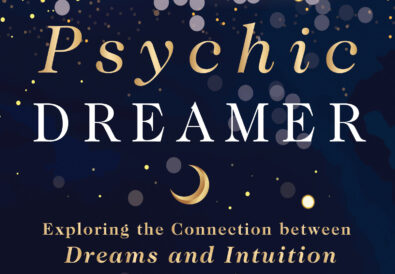Mindful gifting comes down to three questions: whether to give, what to give, and how to give.
Whether to Give
Gifting is part of the fabric of human relationships in every culture on earth. And make no mistake, it is a social contract. You give to me, I accept the gift, then I am obliged to reciprocate by giving you something of equivalent value.
Anthropologists say the only exception is gift-giving between parents and children, when parents obviously tend to spend more while their children are young. This cultural waltz is so powerful that it causes annual stress and drives us to the cash registers in droves.
The simplest way to deal with it, and reduce unnecessary spending and waste, is to release as many people as possible from this social contract by not buying them anything. If you have always exchanged gifts with someone, you may need to have a slightly awkward conversation so they don’t invoke the contract once again this year. But if you talk it through with them, they should soon understand that this could be the most generous gift you can give each other.
In The Book of Joy, an account of a week-long conversation between Archbishop Desmond Tutu and the Dalai Lama, the two wise elders identify and then whittle down eight “pillars of joy”: “Four [of the pillars] were qualities of the mind: perspective, humility, humor, and acceptance. Four were qualities of the heart: forgiveness, gratitude, compassion, and generosity … We would end up, ultimately, at compassion and generosity … ” I believe that mindful gift-giving is supported by both of these “pillars.” It is with compassion that we consider the recipient’s preferences, current circumstances, and needs; and it is with generosity that we sacrifice something—be it money, time, or energy—to present the gift to them. Compassion without generosity is pity, rather than gifting. Generosity without compassion— buying without considering the burden of a return obligation—is not really generous at all.
What to Give
These days, with so much access to credit, if we want something, we buy it. Indeed, we can usually have it in our hands within twenty-four hours, our lust almost immediately sated. This is convenient, and it has given us far more choice than our parents and grandparents ever had, but it has also erased the thrill of delayed gratification, and made it surprisingly difficult to choose gifts that people really want or need. Nevertheless, we keep on spending and giving, and the landfills keep on growing.
One report suggested that sixty million unwanted gifts were given in 2018 in the UK alone. That is probably a conservative estimate. A survey found that six out of every ten presents gifted to a sample of two thousand adults were unwanted. Given that so many of us are stretching our finances and stressing about buying these presents, this seems an outrageous waste of money, a glaring environmental problem, and a wholly unnecessary burden on our collective mental health.
Economists have a name for the difference between what we know we have actually spent on someone else and what they perceive we have spent on them: the “dead-weight loss.” According to a notable paper on the topic in the American Economic Review:
An important feature of gift-giving is that consumption choices are made by someone other than the final consumer. A potentially important microeconomic aspect of gift-giving is that gifts may be mismatched with the recipients’ preferences. In the standard microeconomic framework of consumer choice, the best a gift-giver can do with, say, $10 is to duplicate the choice that the recipient would have made. While it is possible for a giver to choose a gift, which the recipient ultimately values above its price—for example, if the recipient is not perfectly informed—it is more likely that the gift will leave the recipient worse off than if she had made her own consumption choice with an equal amount of cash. In short, gift-giving is a potential source of dead-weight loss.
The study suggests that holiday gift-giving destroys between 10 percent and one third of the value of all gifts, depending on who does the giving. By this reckoning, at least $70 billion is wasted in the United States alone every Christmas through this “dead-weight loss.” Just imagine the benefits to our wallets, well-being, and the world if we were to eliminate any unnecessary, wasteful gifting, and instead focus on a few mindful gifts for those who really matter to us.
The Art of Gifting
Every year, I see people filling bags and baskets with special offers in the run-up to Christmas, muttering, “That’ll do for so-and-so.” But we all know that the likelihood of that person’s ideal gift somehow coinciding with the latest three-for-two offer at the supermarket is minutely low. If you choose any old bargain as a gift for someone, it begs the question whether you should be buying them a Christmas present at all.
Take a moment to think about each friend or relative you really want to offer a gift to this year. Ask what they need right now. Maybe discuss it with them well ahead of time. It’ll be fun and they’ll be touched by your thoughtfulness. Pick their brains with probing questions such as, “What’s your secret dream?” “What’s holding you back?” or “What are you curious about?” This can help you to choose a meaningful gift, and your present will remind them that you really listened to what they had to say.
Excerpted with permission from CALM CHRISTMAS and a Happy New Year — A Little Book of Festive Joy, by Beth Kempton, Scribner ©2020

 Beth Kempton is the bestselling author of Freedom Seeker and Wabi Sabi. Her books have been translated into twenty four languages. Beth has a Master’s degree in Japanese, and teaches and writes about doing what you love and living well. She lives with her husband and two daughters. The author of Calm Christmas and a Happy New Year, she has been obsessed with Christmas since she was a little girl.
Beth Kempton is the bestselling author of Freedom Seeker and Wabi Sabi. Her books have been translated into twenty four languages. Beth has a Master’s degree in Japanese, and teaches and writes about doing what you love and living well. She lives with her husband and two daughters. The author of Calm Christmas and a Happy New Year, she has been obsessed with Christmas since she was a little girl.

















